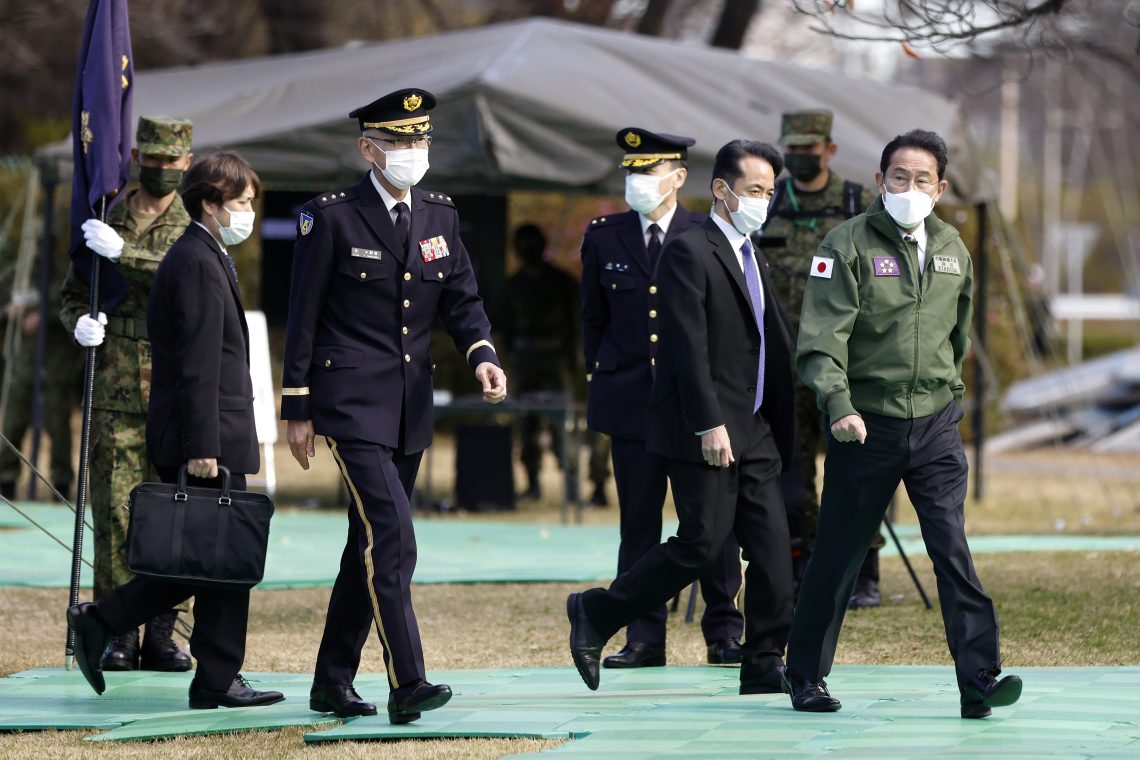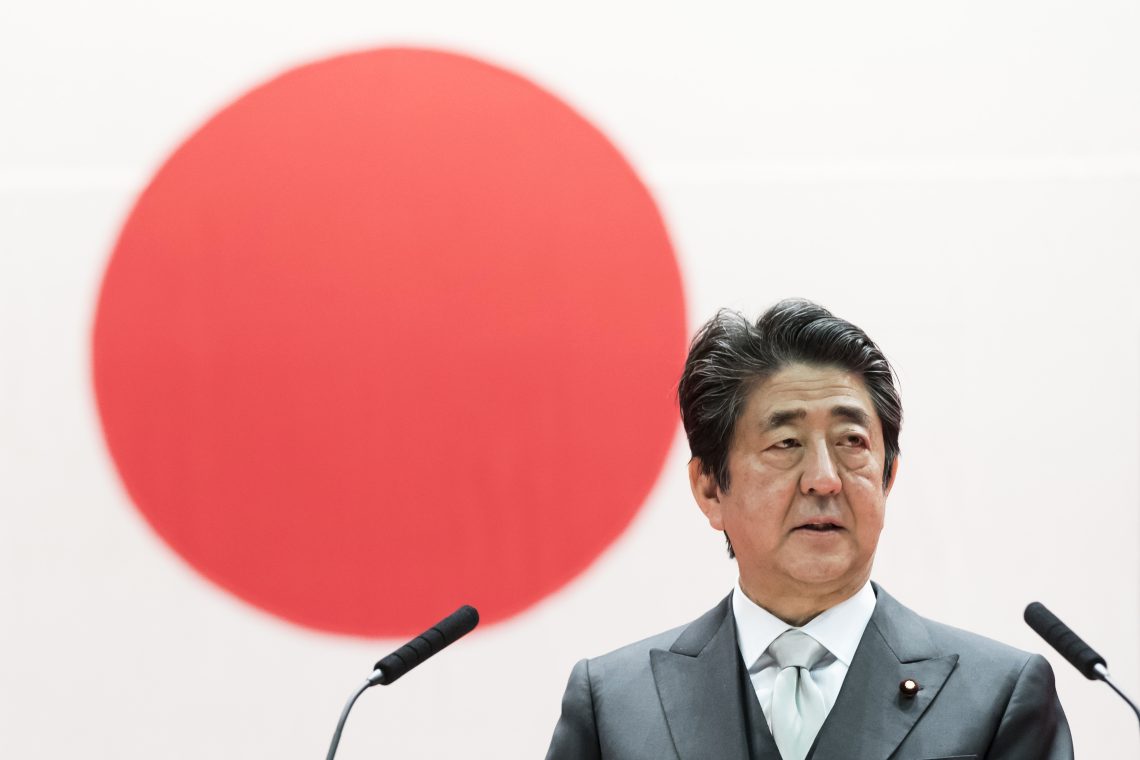Japan and Australia close ranks against China
Japan’s new alliance with Australia marks the beginning of a new era in Japanese security policy, and Tokyo will likely continue to seek new allies.

In a nutshell
- Japan has signed a security treaty with Australia
- Tokyo’s new security strategy is slowly taking shape
- There could be other agreements with Western nations
Tectonic shifts are intensifying in Asia. Japan, whose diplomacy and security policy usually move at a snail’s pace, has entered into a new alliance with Australia. The agreement is only the country’s second bilateral defense pact after the 1951 Japan-United States Security Treaty.
The Reciprocal Access Agreement (RAA) was signed by Japanese Prime Minister Fumio Kishida and Australian Prime Minister Scott Morrison on January 6, 2022, during a virtual summit. The RAA is no match for the historical significance of the treaty with the U.S., which was essential to restore Japanese sovereignty after its defeat and occupation during World War II. Still, the new alliance with the Australians opens the door toward a better defined Japanese overseas security policy.
Japan in search of allies
It seems highly unlikely that the RAA will be the last such agreement. Japan is searching for new security partners for several reasons. First, there is a growing awareness of the need to diversify in the field of national security.
The treaty with the U.S. is and will remain the mainstay of Japan’s external security for the foreseeable future. It provides a military and potentially nuclear umbrella that no other nation can offer.
Although relations with Washington are more stable and predictable with Joe Biden in the White House than during the Trump presidency, doubts about the extent of the American commitment have increased since the abrupt withdrawal from Afghanistan. Fears that the U.S. might not come to the rescue if, for example, China took the Senkaku Islands, have yet to fade.
It is worrying to Asian democracies that Beijing does not merely want to see this authoritarian ideology flourish on its own soil.
Japan’s longest-serving prime minister, Shinzo Abe, left Japan with an enhanced profile on the international security stage when he stepped down in September 2020. Prime Minister Fumio Kishida, who was Mr. Abe’s foreign minister for five years, has made clear his ambition to continue with high-profile personal diplomacy. He hopes this will improve his somewhat lackluster image as a leader, not least in view of the Upper House elections that are due this coming July.
The bilateral treaty with Australia comes in the wake of two multilateral initiatives, the Quadrilateral Security Dialogue (Quad) with Australia, India, Japan and the U.S., as well as the AUKUS security pact between Australia, the United Kingdom and the U.S. While still at an early stage, these new initiatives indicate a major shift in geopolitics in the Far East. Experts believe that Tokyo might next aim for bilateral agreements with the UK and France.
Message to Xi Jinping
All these initiatives have sent a clear message to President Xi Jinping. The Western powers have understood that the hegemonic aspirations of China are underpinned by an ideology that threatens the entire free world, not only its neighbors. Xi Jinping wants to demonstrate that the future belongs to political autocracy, to strong government and state-controlled economy. All these ambitions clash with the Western values of liberal democracy, pluralism, rule of law and economic liberalism.
It is worrying to the West and especially to Asian democracies that Beijing does not merely want to see this authoritarian ideology flourish on its own soil. China clearly hopes to serve as a model for developing countries and emerging economies – and even for Western democracies, which President Xi believes cannot handle the challenges of the 21st century.

This new ideological self-confidence of the Chinese regime is all the more concerning since Beijing now wields substantial economic power. At the moment, Japan and the U.S. cannot compete with the historic Belt and Road Initiative (BRI).
Enhanced cooperation and shared values
During the Cold War, Japan relied on the nuclear security protection provided by its mighty American ally. The Japanese Self-Defense Forces kept to its own land and coastal waters. Tokyo did not meddle in far-flung conflicts. The country adhered to these principles through the Korean War, the conflicts in Indochina and the first Gulf War, when Tokyo paid its way out by financing a large part of the costs incurred by the U.S. under George H. W. Bush.
Later, during the second Gulf War and under the leadership of Junichiro Koizumi, Japan provided logistic help and noncombatant personnel. This step, which prevented Japan from once again footing the bill, paved the way for a new defense policy. Finally, under Shinzo Abe, Japan acquired a much higher profile in foreign policy and security matters.
Prime Minister Kishida will most certainly not be able to muster the political longevity of Shinzo Abe.
Commenting on the new security treaty with Japan, Australian Prime Minister Scott Morrison stated: “This landmark treaty will for the first time provide a clear framework for enhanced interoperability and cooperation between our two forces. The partnership reflects our shared values, our commitment to democracy and human rights, and our common interests in a free, open and resilient Indo-Pacific.”
The partnership is not explicitly targeting China, but the reference to an open Indo-Pacific implicitly refers to Beijing’s activities in the region. Chinese leadership has been vocal in its disapproval of initiatives like the Quad and AUKUS, and often expresses its anger much more openly toward Canberra than Tokyo. Beijing sees Australia as a more vulnerable and therefore easier target. In the case of Japan, China has substantial economic interests to preserve.
Japan’s strategy: risk diversification
Prime Minister Kishida will most certainly not be able to muster the political longevity of Shinzo Abe. He has seen rivals emerge shortly after being sworn in and has even been criticized by Mr. Abe himself. A lot will depend on how the Liberal Democratic Party (LDP) will perform in the Upper House elections in July. It is likely that Mr. Kishida will be yet another one-year prime minister, like his predecessor Yoshihide Suga. Much will depend on how the economy performs and how the government handles the Covid-19 pandemic.
What many countries now wonder is exactly how proactive Japan’s security policy will become. Within the LDP there is a substantial and influential pro-China group, which is opposed to irritating Beijing. This is also the attitude of most of the business elite representing economic interests in Japan.
In its geopolitical strategy, Japan under Shinzo Abe has embarked on a course set to last for a considerable time, provided there is no dramatic change in China. This is reflected in the senior LDP leadership. Mr. Kishida, as foreign minister during the Abe era, was involved in implementing this strategy. After the substantial reshuffle in senior positions that took place last autumn, former Foreign Minister Toshimitsu Motegi took over the influential position of LDP secretary-general. The current foreign minister, Yoshimasa Hayashi, is known to be active in foreign affairs. At least for the time being, it seems the LDP faction that is more oriented toward international cooperation has the upper hand.
Sooner or later, China will give a clearer indication of its long-term approach to a more assertive Japan.
By signing a security treaty with Australia, and with more bilateral treaties likely to follow, Japan now has a much more defined security strategy. An international treaty cannot be modified or abrogated at the drop of a hat. The RAA clearly indicates that Japan is determined to diversify its security strategy.
Awaiting China’s reaction
Soon after becoming prime minister, Mr. Kishida had expected to be received in the White House. Due to Covid-19, the meeting did not take place in person; instead, a virtual summit was held in January 2022, after which President Joe Biden announced that he would come to Tokyo in the spring.
The virtual summit was so extensive and cordial that Beijing felt it necessary to warn Japan not to play with fire. Obviously, among the issues worrying China most is the newfound U.S.-Japan alignment on Taiwan. Never before have leading Japanese politicians been so open in emphasizing Tokyo’s vital security interest in the island, which Beijing sees as a “renegade province” to be brought back under Chinese control.
For now, Beijing is cautious. It is still unclear if Xi Jinping will visit Japan, after a trip planned for spring 2020 had to be canceled due to the pandemic. But, sooner or later, China will give a clearer indication of its long-term approach to a more assertive Japan.








